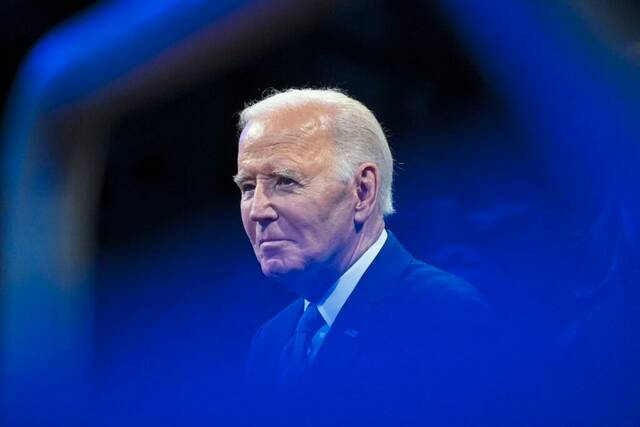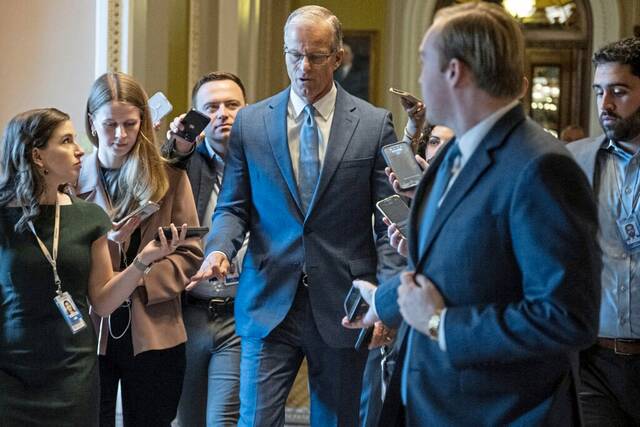Hundreds of thousands of photos were taken of Franklin Delano Roosevelt. And yet there are only four known photos of him in a wheelchair. This was deliberate. FDR hid his disability from polio, even from his mother. He ordered the Secret Service to destroy images of him in a wheelchair. His doctor, recommended by the physician who’d helped keep the severity of President Wilson’s stroke hidden from public view, was chosen for similar discretion.
Roosevelt even successfully enlisted the press corps in what Hugh Gallagher called, in his book by the same name, FDR’s “splendid deception.” It was easy to rationalize the decision. Between the Great Depression and the Second World War, journalists felt that they should go along with the effort to portray the president as physically up to the job, for the sake of American morale.
These are just the most egregious examples of this kind of obfuscation. But there were others. Grover Cleveland had a tumor removed on what the White House claimed was a “fishing trip.” The severity of Dwight D. Eisenhower’s heart attack in 1955 was downplayed so as to not jeopardize his reelection. JFK suffered from Addison’s disease and was “treated” by his personal physician “Miracle Max” Jacobson, a.k.a. Dr. Feelgood, who gave him “vitamin” shots loaded with amphetamine and methamphetamine. The public had no idea until a New York Times report in 1972.
The controversy over Joe Biden’s infirmity — and now his just-revealed stage 4 prostate cancer — is not nearly so new as it may seem.
That controversy, reignited by the publication of “Original Sin: President Biden’s Decline, Its Cover-Up, and His Disastrous Choice to Run Again,” by Jake Tapper and Alex Thompson, was dominating the political conversation until the Biden family released news of his cancer. According to Tapper (an anchor at CNN, where I am a contributor) and Thompson (a reporter for Axios), Biden, his family and his closest aides conspired to hide the extent of Biden’s mental and physical decline from the public. Motivations varied, as they often do, from an intense partisan desire to keep Donald Trump from retaking the White House, to Biden’s own denial and vanity, to a desire by his closest aides to stay in power.
As one high-level aide told the authors, “He just had to win, and then he could disappear for four years — he’d only have to show proof of life every once in a while.”
Suspicions that the cancer revelation is an extension of Team Biden’s desire to control the narrative over his health are hard to avoid. David Axelrod, a Democratic strategist and power broker who was very vocal about the political problems presented by Biden’s age, had the kind of reaction the Biden team probably hoped for. “Those conversations (about Biden’s infirmity and the effort to conceal it) will happen, but they should be more muted and set aside for now as he’s struggling through this.”
It’s hard to gainsay the spirit of Axelrod’s compassion. There’s no call for the viciousness some have spewed in response to an 82-year-old grandfather and husband’s cancer diagnosis. But skepticism is warranted all the same, even if it comes from partisans. As many doctors — including oncologist Zeke Emmanuel, a former Biden administration medical adviser — have noted, prostate cancer is very slow-moving, and it is surprising a two-term vice-president and one-term president could have so many high-profile medical exams without it being caught before now. Whatever the truth, history — both Biden’s and that of the presidency — makes asking unpleasant questions legitimate.
One of the obvious and much-discussed lessons from this chapter is that the news media should indulge its skepticism of those in power a lot more, particularly when doing so is politically or ideologically undesirable. For many Republicans, reporters’ relative lack of curiosity about Biden’s health and acuity can be explained entirely by the partisanship of journalists who, fearful of a Trump restoration, hid the truth.
Less discussed, however, is that partisanship can be a useful tool in exposing the truth, as well. Axelrod didn’t push for removing Biden from the 2024 ticket because he’s a Republican. He’s a partisan Democrat who found it necessary to tell the truth for the sake of the party’s chances of winning.
Similarly, the right’s response to “Original Sin” and its revelations hasn’t been one of shock but of “we told you so.” Highlighting Biden’s infirmity suited their partisan ends, but that doesn’t mean it wasn’t true. Many in the media forgot partisanship is often one of the only things that can motivate people to give voice to unpleasant truths.







